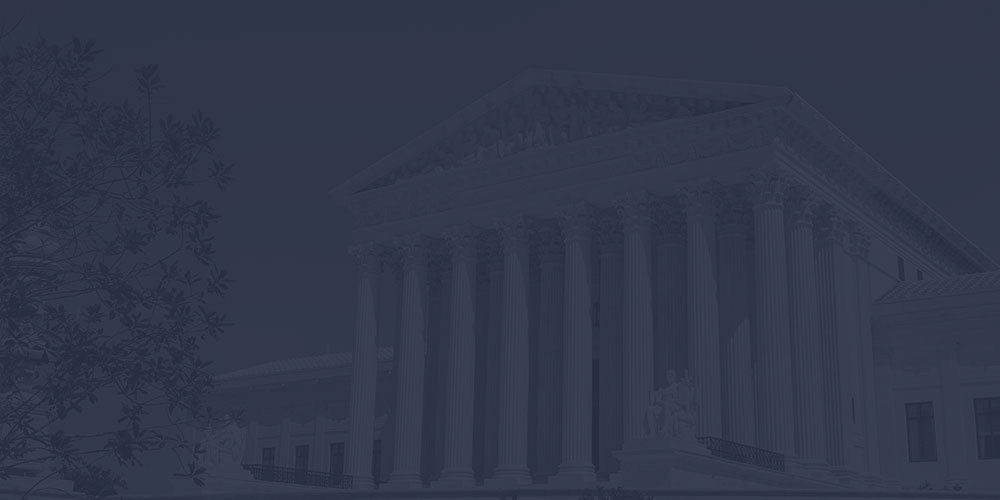On November 13, 2024, the Supreme Court of Missouri will hear oral arguments in the matter of Carrie Schultz, et al., v. Great Plains Trucking, inc. and Lennis Beck (Case No. SC100582). This case is an appeal from the Circuit Court of St. Charles County, Missouri, 11th Judicial Circuit wherein, on August 10, 2022, the trial court entered judgment in this wrongful death action against Defendants Great Plains Trucking, Inc. and Lennis Beck for $10 million compensatory damages, $10 million in punitive damages against Great Plains Trucking, Inc., and $25,000.00 against Lennis Beck.
Great Plains Trucking, Inc. and Lennis Beck (“Defendants”) will be arguing several points of contention before the Missouri Supreme Court including the trial court’s alleged error in submitting punitive damages. Their argument against the submission of punitive damages involves the requirement under Missouri law that Plaintiffs are to provide “clear and convincing” evidence in support when requesting punitive damages. Rodriguez v. Suzuki Motor Corp., 936 S.W.2d 104, 110 (Mo. 1996). The Defendants argue that the facts elicited through trial testimony did not amount to clear and convincing evidence to deem the submission of punitive damages.
It is important to note that, as stated in the Defendants’ Substitute Brief, in a negligence action, punitive damages may only be awarded if the plaintiff shows the defendant “knew or had reason to know a high degree of probability existed that the action would result in injury.” Ingham v. Johnson & Johnson, 608 S.W.3d at 715, n 25, quoting Poage v. Crane Co., 523 S.W.3d 496, 515 (Mo.App. 2017). In other words, the plaintiff must show by “clear and convincing” evidence the defendant showed a complete indifference to or conscious disregard for the safety of others. Peters v. Gen. Motors Corp., 200 S.W.3d at 25 (Mo. App. 2006).
This is a relatively high burden for plaintiffs requesting punitive damages to meet. However, this is a necessary burden as, characterized in the Defendants’ brief, punitive damages are “extraordinary and harsh.” Rodriguez., 936 S.W.2d 104, 110 (Mo. 1996). Moreover, in Missouri, punitive damages are “imposed for the purpose of punishment and deterrence and tantamount to the imposition of a criminal fine.” Rodriguez, 936 S.W.2d at 110; Romeo v. Jones, 144 S.W.3 324, 334 (Mo.App.2004).
Therefore, for a court to decide whether plaintiffs have met this high but necessary burden, the court must consider whether the evidence giving the jury the right to determine credibility, weigh the evidence, and draw justifiable inferences of fact, is sufficient to permit a reasonable juror to conclude the plaintiff established with convincing clarity, that it was “highly probable” the defendant’s conduct was outrageous because of evil motive or reckless indifference. Peters, 200 S.W.3d At 25.
Counsel for the Defendants in this case presented numerous factual examples of Defendant Beck’s driving at the time of the accident and contrasted those examples with relevant Missouri case law wherein punitive damages were not awarded for mere negligence. For example, Defendant Beck was driving approximately 4-5 mph over the posted speed limit and switching lanes when the collision at issue occurred. See “Substitute Brief of Appellants Great Plains Trucking, Inc. and Lennis Beck” at 66-67. Furthermore, trial testimony demonstrated that Defendant Beck was “trained, tested, and familiar with the federal regulations and CDL rules” concerning operating a tractor-trailer in certain conditions. Id. According to the Defendants, these factual representations, among many others, elicited through trial testimony did not amount to the “clear and convincing evidence” threshold required by Missouri law.
Clearly, requesting punitive damages is a fact-sensitive inquiry that requires an evidentiary hearing. Therefore, plaintiffs cannot make a claim for punitive damages in their initial pleadings (complaint, petition, etc.) as is commonly done. As stated above, under Missouri law, plaintiffs are to seek leave and, at an evidentiary hearing, present to the court evidence that must amount to “clear and convincing” in order to be awarded the punitive damages. R.S.Mo § 510.261. Although punitive damages are only one of many points in this case, the Defendants are seeking to have reversed, the Missouri Supreme Court’s ruling on this issue could easily set a precedent of lowering what constitutes “clear and convincing” evidence when plaintiffs request punitive damages if the Court affirms the lower court’s ruling.



